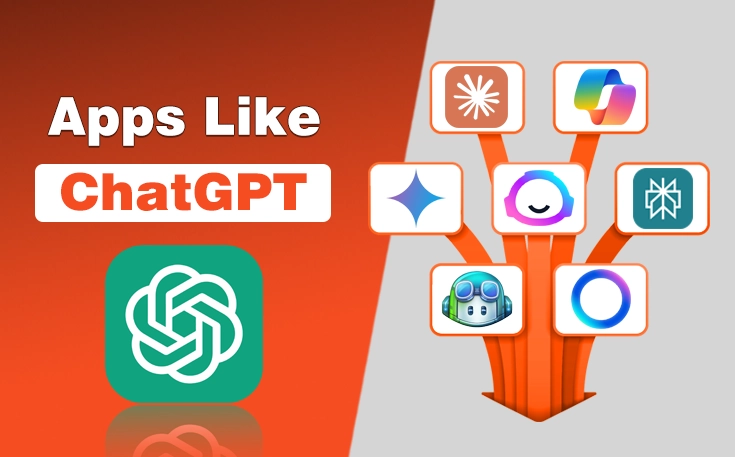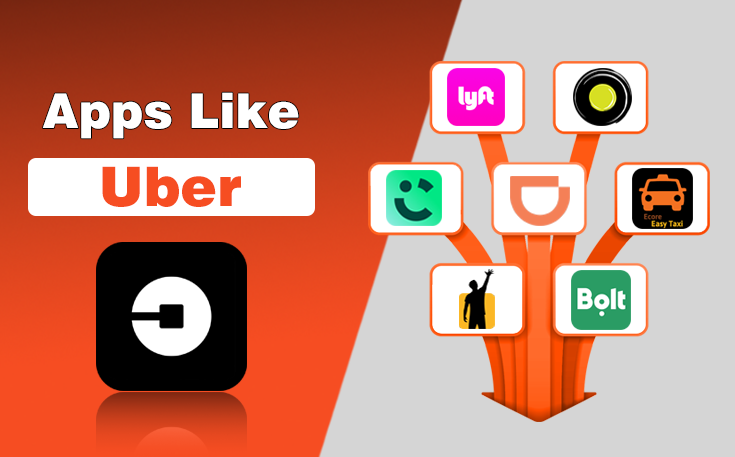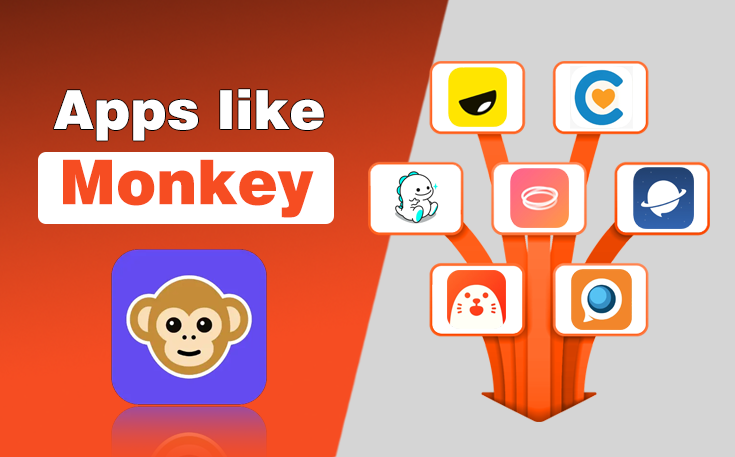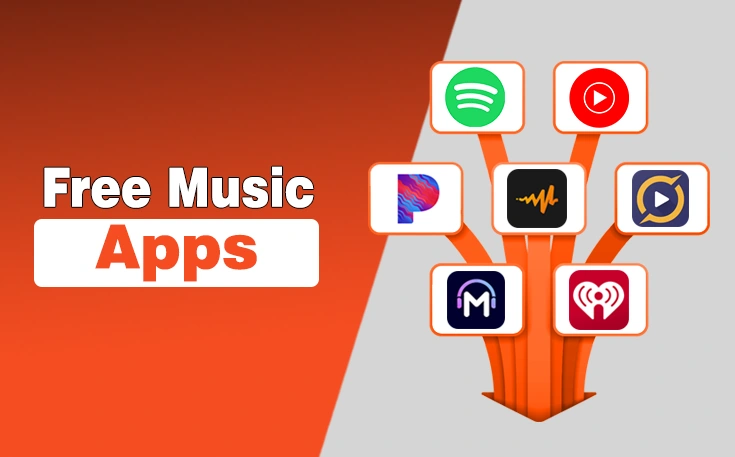Have you ever asked ChatGPT a question and felt like the answer just wasn’t enough? Maybe it repeated itself, lacked fresh data, or did not quite understand what you really wanted. I have been there too, staring at the chat window thinking, “There has to be something better than this.” The truth is, ChatGPT is powerful, but it is not perfect, and that’s why you may need to switch to other apps like ChatGPT.
In 2025, the world is packed with incredible ChatGPT alternatives that solve the problems this tool can’t. From AI tools that give real-time, data-backed answers to apps that think creatively and work faster, everything is now available.
So, catch the details on the top 13 best apps like ChatGPT that you can start using today to grab the desired results.
What is ChatGPT?
ChatGPT is an advanced conversational AI developed by OpenAI that can understand prompts and generate human-like responses.
You can use it for tasks like writing content, brainstorming ideas, summarizing information, and answering questions across multiple topics. What makes ChatGPT powerful is its ability to engage in natural conversations, provide creative suggestions, and assist in problem-solving without needing complex instructions.
However, it works primarily on pre-trained data and can occasionally produce outdated or generic responses. While it is a versatile tool for productivity and creativity, many users explore alternatives to overcome its limitations and access more specialized or real-time capabilities.
Are There Other Apps Like ChatGPT?
Yes. There are many other apps like ChatGPT that are available online in 2025. The top 13 options that I find to be the perfect replacement are:
- Claude AI
- Microsoft Copilot
- Google Gemini
- Jasper AI
- Perplexity AI
- GitHub Copilot
- Meta AI
- Grok AI
- DeepSeek
- Pi.ai
- Otter AI
- Elicit AI
- Google NotebookLM
What are the Limitations of ChatGPT?
While ChatGPT is a powerful AI tool, it is not without its drawbacks. Over time, I have noticed several limitations that often make users look for alternatives. Here are the key limitations of ChatGPT:
- Outdated Knowledge: ChatGPT does not have real-time access to the internet in its base version, which means it may provide outdated information or miss current events.
- Generic Responses: Sometimes, the answers can feel repetitive or lack depth, especially when handling complex or niche topics.
- Limited Accuracy in Certain Fields: Although it is great for general information, ChatGPT may provide incorrect or misleading details in technical, medical, or financial topics if not fact-checked.
- No Native Integration with External Tools: It cannot directly access or update documents, spreadsheets, or other apps unless paired with third-party integrations.
- Restricted Creativity in Some Tasks: When generating creative ideas or personalized content, ChatGPT might feel robotic or less original compared to specialized AI tools.
Why You Should Look for Other Apps Like ChatGPT?
If you are searching for other AI apps like ChatGPT, chances are you have hit one of its limitations. I have experienced it myself. Sometimes the responses feel repetitive, or the information is outdated, and it just does not solve the problem the way I need.
In 2025, productivity and creativity demand more than just a conversational AI. Users want tools that can provide real-time data, specialized skills, integration with their workflows, and more human-like creativity.
Exploring AI apps like ChatGPT is not about replacing it completely. It is about finding AI tools that can do what ChatGPT can’t, whether that’s generating marketing content, coding smarter, performing deep research, or even understanding emotional context.
When you use the right combination of tools, you can transform how you work, learn, and create.
Top 13 Apps Like ChatGPT to Supercharge Your Productivity
Now that you know why ChatGPT is not always enough, let’s get into the AI tools that can fill those gaps. I have explored dozens of ChatGPT alternatives, and the 13 apps I am about to share don’t just mimic what ChatGPT does—they go beyond it.
Some of these tools specialize in real-time knowledge, others shine in creative content generation, and a few are perfect for coding, research, or personal productivity. No matter your workflow, at least one of these apps can make your tasks faster, smarter, and easier.
Let’s explore them one by one and see which one can become your new AI powerhouse.
1. Claude AI
Claude AI by Anthropic is one of the most promising conversational AI tools I have explored. It focuses heavily on being ethical, safe, and extremely user-friendly. You can find it particularly useful for tasks that require a complete understanding because it interprets context exceptionally well.
If you are someone who needs to write content, draft an email, summarize reports, or brainstorm new ideas without worrying about misleading or harmful responses, Claude AI is a top choice.
| Pros | Cons |
|---|---|
| Highly safe and ethical conversational AI | Can sometimes be cautious and less creative |
| Understands context exceptionally well | |
| Great for drafting emails, reports, and content | |
| Reduces chances of harmful or misleading responses | |
| User-friendly and reliable for professional work |

2. Microsoft Copilot
Microsoft Copilot is the AI backbone for productivity enthusiasts like me. Integrated across Microsoft 365 apps such as Word, Excel, and PowerPoint, it transforms regular workflows into AI-powered experiences. Imagine creating entire presentations or analyzing spreadsheets with natural language prompts.
What I like the most is that it blends seamlessly into the tools we already use daily. Whether you are summarizing meeting notes or generating reports, Copilot saves hours of work and ensures accuracy in professional tasks.
| Pros | Cons |
|---|---|
| Seamlessly integrates with Microsoft 365 apps | Requires Microsoft 365 subscription |
| Speeds up report writing, emails, and presentations | |
| Enhances productivity by automating repetitive tasks | |
| Supports natural language queries for Excel and Word | |
| Saves hours of work in professional environments |

3. Google Gemini
Google Gemini, formerly known as Bard, represents Google’s bold entry into the AI ecosystem. I use it when I need deep search integration combined with conversational AI. Unlike ChatGPT, which works primarily on prompts, Gemini uses Google’s search and knowledge base to provide responses enriched with real-time information.
For content creators, marketers, and researchers like me, it is a goldmine because it ensures that the answers are up-to-date and credible. That’s why I have added it to the list of the best apps like ChatGPT.
| Pros | Cons |
|---|---|
| Provides AI responses with real-time search integration | Limited offline usability |
| Ensures up-to-date and credible information | |
| Great for research and creative brainstorming | |
| Works well with Google’s productivity ecosystem | |
| Supports multi-language and contextual understanding |

4. Jasper AI
Jasper AI has always been a favorite among writers, and in 2025, it is even better. You can turn to Jasper whenever you need high-quality marketing copy, blog posts, or social media captions. What makes it different from ChatGPT is its specialized focus on brand voice and marketing needs.
It allows you to create customized campaigns without spending hours thinking of catchy phrases or engaging narratives. If you are running a business or managing online content, Jasper can feel like having a 24/7 creative assistant by your side.
| Pros | Cons |
|---|---|
| Specializes in marketing and brand-focused content | Subscription can be expensive |
| Generates blogs, ads, and social media captions quickly | |
| Maintains consistent tone and voice for brands | |
| Helps with creative campaigns and product descriptions | |
| Saves time for digital marketers and copywriters |
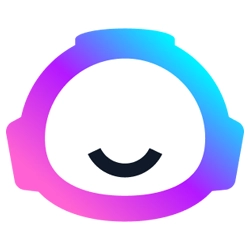
5. Perplexity AI
Next, I have added Perplexity AI among the best AI apps like ChatGPT because it is one of the smartest research-focused AI tools I have tested. If you ever wished ChatGPT could act more like a reliable research assistant, this is the app for you. I love how it cites sources directly and provides links to verified references.
This feature alone makes it valuable for academic projects, data-backed content, and fact-checking tasks. It bridges the gap between conversational AI and precise, credible knowledge, something that boosts confidence in the information you receive.
| Pros | Cons |
|---|---|
| Provides accurate answers with source citations | Can struggle with very niche queries |
| Ideal for research and fact-checking tasks | |
| Offers links to verified references | |
| Supports real-time information access | |
| Useful for students, journalists, and researchers |

6. GitHub Copilot
If you are a developer or even a beginner trying to learn coding like I once did, GitHub Copilot is a lifesaver. It is designed to assist with coding in real time, suggesting lines of code, completing functions, and even explaining snippets.
I find it extremely helpful for learning new programming languages or debugging errors. Compared to ChatGPT, which can provide code snippets in conversations, GitHub Copilot integrates directly into your IDE, which makes it a truly hands-on AI coding partner.
| Pros | Cons |
|---|---|
| Assists in writing and completing code in real time | Requires coding knowledge to utilize fully |
| Integrates directly into code editors like VS Code | |
| Helps debug and explain code | |
| Supports multiple programming languages | |
| Speeds up learning for beginner developers |
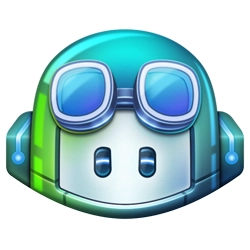
7. Meta AI
Meta AI brings conversational intelligence into the social and metaverse environment. What I appreciate about Meta AI is how it merges productivity with entertainment. It can help schedule events, manage digital tasks, and interact within Meta’s ecosystem.
While ChatGPT focuses mostly on standalone conversation and creation, Meta AI gives you a sense of an AI companion that works across your social and workspaces. For people invested in Meta’s virtual reality and social media integrations, this AI is a game-changer.
| Pros | Cons |
|---|---|
| Integrates with Meta’s social and VR ecosystem | Limited outside Meta platforms |
| Can assist in task management and scheduling | |
| Offers conversational and productivity-focused capabilities | |
| Combines entertainment with AI interaction | |
| Supports social media and metaverse experiences |
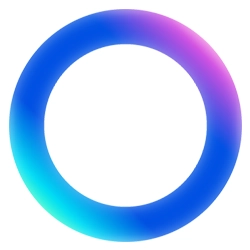
8. Grok AI
Grok AI by xAI has a more witty and casual personality, which you can enjoy when you want engaging and less formal interactions. Inspired by humor and curiosity, Grok AI can answer complex questions while maintaining a human-like conversational flow.
It is especially effective for brainstorming or creative discussions where rigid, robotic responses might feel uninspiring. If you enjoy chatting with AI that does not just inform but also entertains, Grok AI is a delightful alternative to ChatGPT.
| Pros | Cons |
|---|---|
| Offers witty and engaging conversations | Less formal for professional tasks |
| Great for brainstorming and casual chats | |
| Provides informative yet entertaining responses | |
| Keeps interactions human-like and fun | |
| Encourages curiosity and creativity |

9. DeepSeek
DeepSeek is for people like me who crave highly analytical insights. It combines AI’s conversational abilities with advanced data interpretation. Whether it’s understanding financial data, breaking down research, or performing trend analysis, DeepSeek thrives in high-complexity tasks.
Compared to ChatGPT, it feels more specialized for users who rely heavily on accurate data-driven decision-making. Businesses, researchers, and strategists will find this AI tool indispensable for uncovering patterns and insights hidden in raw information.
| Pros | Cons |
|---|---|
| Highly analytical and data-driven insights | May feel complex for casual users |
| Ideal for financial, market, and trend analysis | |
| Handles high-complexity research tasks efficiently | |
| Provides in-depth explanations and breakdowns | |
| Valuable for businesses and researchers |

10. Pi.ai
Pi.ai focuses on being your personal, empathetic AI companion. Unlike ChatGPT, which excels in general conversations and content generation, Pi.ai is more about understanding emotions and providing personalized responses. You can use it when you want an AI that feels closer to a coach or a thoughtful friend.
It can help with goal tracking, life advice, and personal reflection. In 2025, having an AI that can connect with users emotionally is a unique touch that sets Pi.ai apart from most AI apps.
| Pros | Cons |
|---|---|
| Focuses on emotional and personal conversations | Less suitable for technical or research tasks |
| Provides empathetic and personalized responses | |
| Helps with goal setting and life advice | |
| Acts as a reflective AI companion | |
| Great for personal growth and motivation |

11. Otter AI
Otter AI is my go-to solution for effortless transcription and note-taking. I find it incredibly useful during meetings, lectures, and interviews because it captures every word accurately without me having to type a single thing.
The best part is that it automatically organizes and timestamps the recordings, so you can revisit key moments without scrolling through hours of audio. For anyone who wants to save time and stay organized, Otter AI feels like having a dedicated digital secretary.
| Pros | Cons |
|---|---|
| Provides highly accurate transcriptions for meetings and lectures | Requires a stable internet connection for best results |
| Automatically timestamps and organizes notes | |
| Supports voice recording and live captioning | |
| Saves hours of manual note-taking work | |
| Integrates with video conferencing tools like Zoom and Google Meet |
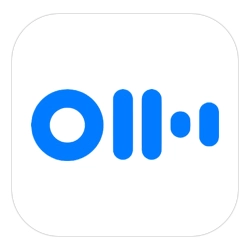
12. Elicit AI
Elicit AI has become a reliable companion for academic research and literature reviews. You can use it when you need to sift through piles of research papers quickly and extract meaningful insights. It summarizes findings, identifies relevant papers, and presents information in a way that saves you hours of manual work.
If you are a student, researcher, or professional who depends on academic resources, Elicit AI can streamline your workflow and keep your focus on understanding rather than searching.
| Pros | Cons |
|---|---|
| Streamlines academic research and literature review | Limited to English language papers |
| Summarizes key findings from multiple papers efficiently | |
| Provides relevant source recommendations quickly | |
| Saves time by reducing manual searching | |
| Easy to use for both students and professionals |

13. Google NotebookLM
Google NotebookLM is the smart notebook I never knew I needed. I like using it because it turns my scattered research notes into an organized knowledge base. It can answer questions based on my notes, generate summaries, and even provide context to my saved content.
These aspects make it a perfect companion for anyone juggling multiple research projects or brainstorming sessions. In 2025, having an AI-powered notebook like NotebookLM means you never lose track of important information.
| Pros | Cons |
|---|---|
| Organizes scattered research notes into a smart knowledge base | Best features work within Google’s ecosystem |
| Generates summaries and contextual insights | |
| Answers questions directly based on saved notes | |
| Perfect for multi-project research and brainstorming sessions | |
| Helps avoid losing track of important information |
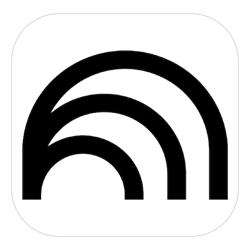
Final Thoughts
These are the details about the best apps like ChatGPT. AI is no longer a futuristic concept. It is already here, transforming the way we think, work, and create. I have personally explored dozens of tools, and these top 10 ChatGPT alternatives stand out for their ability to enhance productivity, spark creativity, and engage in meaningful AI conversations.
Each app has its unique edge, from Jasper’s marketing brilliance to Perplexity’s research focus and GitHub Copilot’s coding power. If you are ready to make 2025 the year of smarter work and creative exploration, these AI tools can be your perfect companions.
Need custom app with amazing features?
Get a Quote
